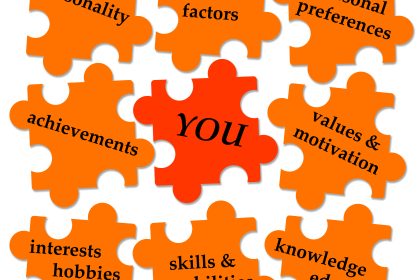
From harnessing your intuition to learning how to feel whether something is a good fit, here are 11 answers to the question, “Big decisions are influenced by time, money, relationships, health, and more. What are some unspoken factors that influence your decisions?”
- Trusting Your Gut
- Remaining Curious
- Making Longevity Your Decision Filter
- Balancing Family and Work Life
- Building a Health Relationship With Fear
- Leaning into Core Strengths
- Recognizing Limiting Beliefs
- Writing With Introspection
- Locating Which Part of Your Brain is Deciding
- Relying on Strategic Relevance
- Paying Attention to Your Energy
Trusting Your Gut
The most important factor in any decision I make is how well it sits in my gut. Your gut is never wrong. Even when everything looks good on paper, your gut may tell you differently.
The biggest mistakes I made were because I didn’t trust my own natural instincts. Your gut has no capacity for language, which is why we rarely know why we feel the way we do. But rest assured, your gut is speaking to you. LISTEN!
Lori Karpman, CEO, Lori Karpman & Company
Remaining Curious
The golden key to coaching is curiosity! Curiosity opens the brain to possibilities. It is an unspoken superpower that can influence decisions. When we come to a situation intending to listen, to leave our expectations and assumptions at the door, we open up the opportunity to notice patterns in relationships, health, finances, and more.
When we pause with curiosity, we can offer patience, awareness, understanding, space, and exploration to ourselves and others to make big decisions. Curious exploration and reflection allow for a positive experience to move forward.
Jane McCarthy, PCC, Chief Brainstormer, JaneStorm
Making Longevity Your Decision Filter
Longevity is the major influence on my own decisions and actions—and how I guide my clients. If you don’t use longevity as the filter for your decisions, you might get to where you wanted to be, but then not live long or well enough to enjoy and appreciate it.
My Longevity Formula is life span (the number of years you are alive) plus health span (the number of years you are healthy), plus purpose. I help clients keep their health and purpose in mind with all they do so they support their life span, and that will support the work they do.
Kit Cassingham, Chief Energizing Officer, Live In Focused Energy
Balancing Family and Work Life
Relationships are at the core of who we are, what we do, and what we achieve. They influence the decisions we make, and this mainly flows out of the context of our relationships.
No relationships in our lives are more pivotal and demanding than family life and business life. Unfortunately, many struggle with navigating these two and prioritizing them to extract the benefit from them that produces enriching relationships and valuable decision-making.
We have learned that when family life and business life are regarded as the teammates (and not opponents) they are meant to be, decision-making is rich in clarity and is wisdom-powered because of pivotal relationship priority.
Leo Simpson II, MA, CEO and Coach, TEAM 3L
Building a Healthy Relationship With Fear
Fear is one factor that everyone avoids and nobody talks about. So let’s unpack it here!
I believe that most of our procrastination issues, unaccomplished goals, plans left in the dust, and all of those dreams that haven’t come true yet are because we have given total power to our fears, and we haven’t been able to make peace with them, and mostly, learn how to dance with these fake and irrational, non-existent evidence that lives in our minds.
This is one of the most common and biggest factors that influence my clients’ decisions, but something we need to accept is the fact that fear is not something we weren’t supposed to feel or that we need to avoid but learn to have a healthy relationship with it.
It is okay to let fear into our decisions or lives; fear is just a reminder that we care! But what we can’t do is let fear choose for us!
Mariana Macias, Executive Performance Coach, Mariana Macías Coaching
Leaning into Core Strengths
One factor that is often not discussed or considered is core strengths. We excel when we lean into our strengths, and our satisfaction levels increase. When the organization or individual leverages their strengths, they decrease their learning curves, and they experience less friction overall.
Nicole Cox, Coach and Business Consultant, Your Torchlight
Recognizing Limiting Beliefs
It’s that voice inside of us that says, “No, you can’t, won’t, or shouldn’t.” It’s a filter through which we diminish our potential. Limiting beliefs are the stories we tell ourselves—and although the subject might change, the content is always the same: we are not enough.
The challenging thing with limiting beliefs is that we are not always aware that we have them. That’s where a coach can help. Coaches are trained to listen for cues that a limiting belief may be present, and together with their clients, bring them into the light of day, where they can be seen for what they really are.
Jennifer Lee, Coach, Up Front Coach
Writing With Introspection
Think about it; big decisions usually require deep introspection to be made effectively. When faced with big choices, get all of your thoughts and feelings on paper—your doubts, fears, obstacles, and motivations—pour them out. And don’t forget to focus on your reasons why that are behind it all.
And as you review your inspired thoughts and also your triggers, smart answers will greet you with unexpected knowing.
Joseph Mitchell, High Performance Coach, ActivateYourGreatness
Locating Which Part of Your Brain is Deciding
Did you know decisions can happen in different areas of the brain? One unspoken factor that heavily influences my clients’ decisions is their awareness of the area of their brain they are using to decide!
Your limbic system is the emotional operation center of your brain, responsible for processing sensations, emotions, and referencing memories, and it is not designed to consider facts and long-term consequences.
Your prefrontal cortex is the thought-based operation center of your brain, responsible for processing data and seeing consequences/long-term impacts, and it is not designed to process emotion or feeling.
Coaching helps us be more conscious and in charge of our choices by:
- Being aware of the area of our brain that is driving our choices
- Training ourselves to choose from the optimal area for a given choice
- Learning to integrate our thoughts and emotional processes to support one another when making decisions.
Jennifer Matthews, Owner and Behavioral Coach, Coach Jen Matthews
Relying on Strategic Relevance
Another factor that comes into play when making big decisions is strategic relevance. It’s hard to make choices in a vacuum. When we have a north star, it’s easier. That’s where strategic relevance comes in.
Does this decision move me toward achieving my strategy, or does it pull me away from doing so? Thus, we not only benefit from having strategies to improve the impact we can make in our lives and professions, but they also help us think clearly when faced with a big decision.
Michael Neuendorff, President, Bay Area Executive Coach
Paying Attention to Your Energy
While many, if not most, have been conditioned to decide based on external factors, I’ve found that most of my success has hovered around paying attention to my own energy.
Focusing on how I am feeling, with my thoughts and my decision to take aligned action on what I want and what matters most, has given me the most success and satisfaction in my decision making.
Focus on what drives you. Ask yourself the question, am I driven by fear of the matter, or am I driven by the love of the matter? And when a sense of peace ensues, you are on the right track. Pay attention to your energy.
Sarah Langley, CEO, LeadHer International





